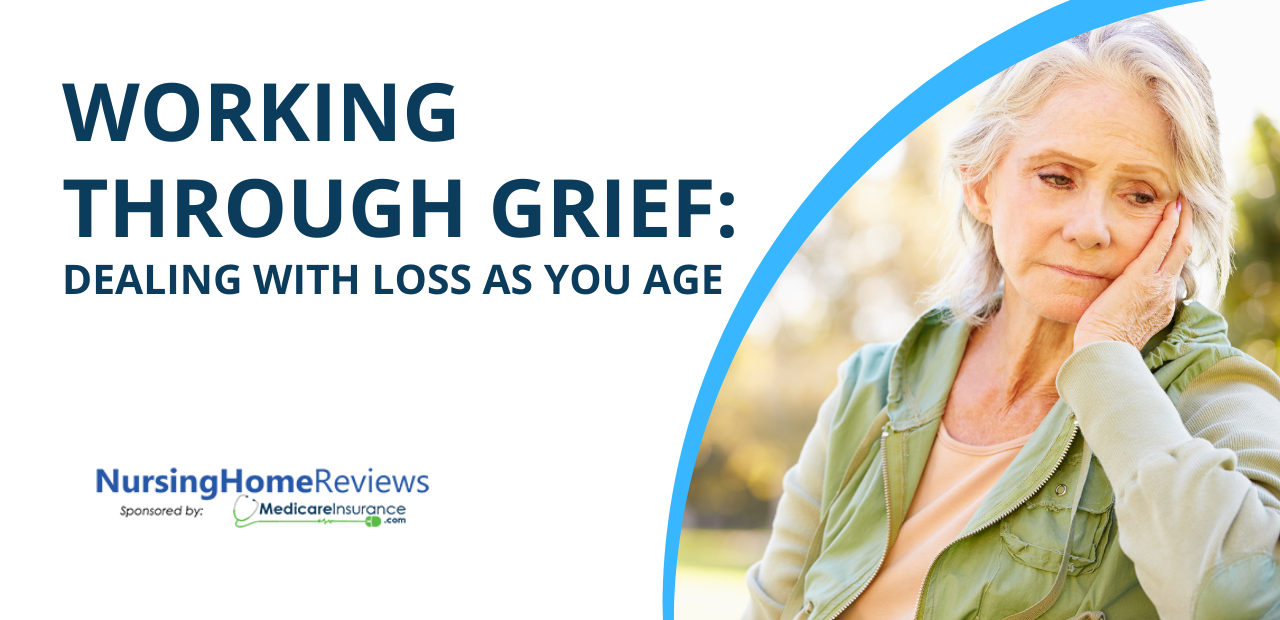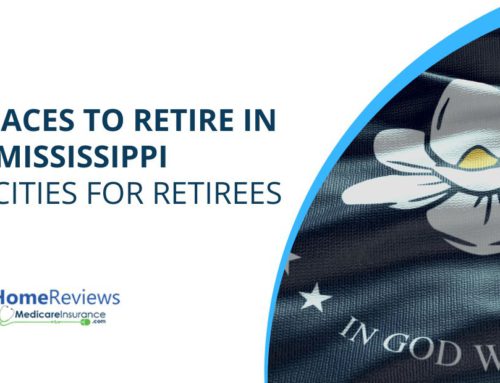
How can we cope with loss and grief while aging?
Throughout our entire lives, we all deal with grief at some point. Whether it be the death of a beloved pet, the passing of a close friend, or losing a spouse or other cherished loved one, there is never truly an easy time to experience grief.
Unfortunately, grief and aging go hand in hand. The older we get, the more likely we are to experience this lamentable fact of life. In that same vein, sometimes our ability to work through grief changes over time, especially if you lose someone close to you who is of a similar age.
If you are currently experiencing grief and attempting to work through your emotions, take comfort in the fact that you are not alone. Dealing with loss is never easy, but developing an in-depth understanding of the grieving process and learning new coping mechanisms can go a long way on your path to emotional recovery.
The 5 Stages of Grief
Swedish-American psychiatrist Dr. Elisabeth Kübler-Ross was the first to develop a recognized psychological theory surrounding the concept of death, loss, and aging. Over the course of her life and career, she developed the Kübler-Ross model, a five-stage framework that separates and classifies emotions surrounding death, in an effort to help people further understand the mourning process.
Today, the Kübler-Ross model of the 5 Stages of Grief is considered a psychological standard in the general understanding of how humans cope with death. Though people may experience each of the five steps in different orders, simultaneously, for different lengths of time, or not at all, the classifications are as follows:
Denial
During this stage of grief, you may have difficulty accepting the reality that your loved one has passed. As a result, many people attempt to avoid or ignore the situation and its fallout by refusing to engage in any form of memorial, remembrance, or discussion surrounding the death.
In many cases, the denial stage can occur even before your loved one has passed away. For example, if your spouse is currently in hospice care, you may be open to speaking with their doctors or healthcare providers.
Anger
This stage of grief can be expressed both inwardly or outwardly. Typically, it is characterized by feelings of rage, blame, and irritability. The straight-forward explanation behind this stage is that death is not fair, especially if it is sudden or unexpected.
During this stage, it is normal to feel angry at doctors, nurses, or even other relatives for reasons that are unclear. You may also be angry with yourself or the world around you, feeling as though everyone could have done more to prevent the situation.
Bargaining
The bargaining stage will often leave you feeling as though you can make some sort of deal with yourself or a higher power in exchange for saving your loved one or bringing them back. A textbook example of the bargaining stage is attempting to make deals with God that you will do anything if your loved one is spared.
Another, more subtle form of the bargaining stage is “if only” statements, where you may find yourself rethinking your actions and your previous decisions, claiming that “if only” you had done something differently, the tragedy could have been avoided.
Depression
A very commonly-depicted stage of grief, depression is characterized by intense sadness or hopelessness surrounding the loss of your loved one and the concept of your own mortality.
Depression following death can manifest in a number of different ways including intense bouts of crying, personal isolation or withdrawal from others, struggles with sleeping, eating, or daily activities, a loss of interest in personal hobbies, feelings of guilt, and feelings of nihilism.
Acceptance
The most positive stage of grief is acceptance. This is the point at which you reach a state of peace regarding the loss you have experienced. Although this doesn’t mean that you are entirely free from your grief, it does mean that you have reached a point of understanding to some degree; a realization that that person you loved is gone and you do feel as though you are able to participate in life without them.
Keep in mind that you may never fully “get over” the loss of someone close to you, and that is perfectly normal and okay. Experiencing the 5 Stages of Grief in your own time and on your own terms is completely okay as well.

Working through Grief: How to get through the tough times.
The fact is, grief doesn’t simply go away if you ignore it entirely. The importance of acknowledging and validating your feelings when dealing with loss and aging cannot be understated.
Whether you are struggling with the passing of a childhood friend, losing your spouse, or even the death of a sibling or parent, it is incredibly important to actively process your feelings in order to begin the healing process.
The first thing you can do as you begin your journey to acceptance is remember that all of your feelings are justified, normal, and acceptable. There is no right or wrong way to mourn, regardless of whether others recognize your grief.
Once you have taken the time to fully process your feelings and you feel as though you are ready to participate in your usual activities again, try to change up your routine or introduce something new. You may be surprised to find that a new lease on life can be discovered in many unexpected places.
Working through grief often involves finding the perfect balance between acknowledging your feelings and continuing to live your life to the fullest. Often, close friends, adult children, or other family members can provide you with a great support system as you cope.
Another option for dealing with grief can come in the form of counseling or therapy, which can often be found as a built-in feature of many nursing homes and retirement communities. The reality is, death and the feelings surrounding it are incredibly complicated, but you should never have to face it alone.
Even if you feel like you don’t need the help, consider reaching out to a counselor or senior living center today for more information.





